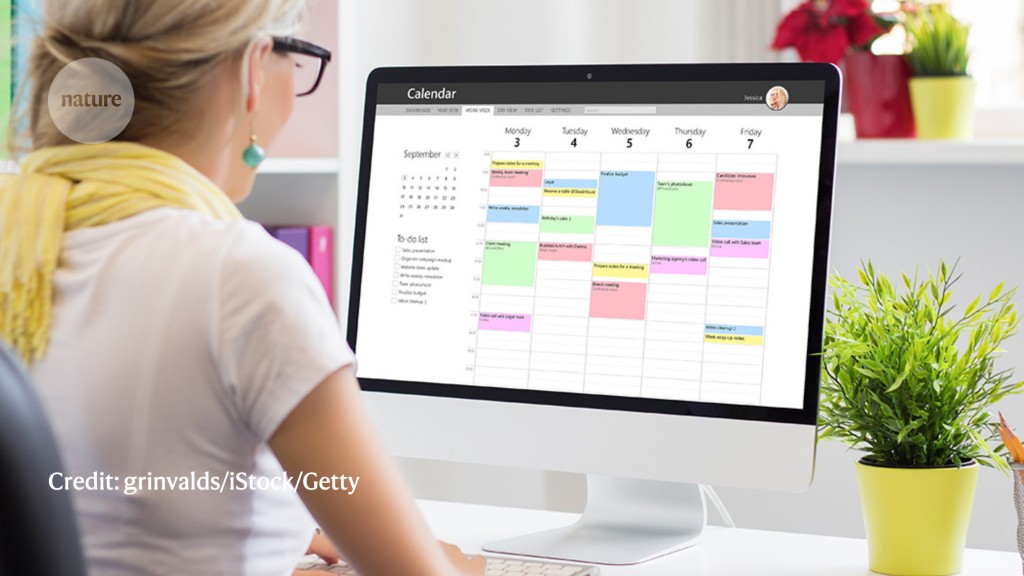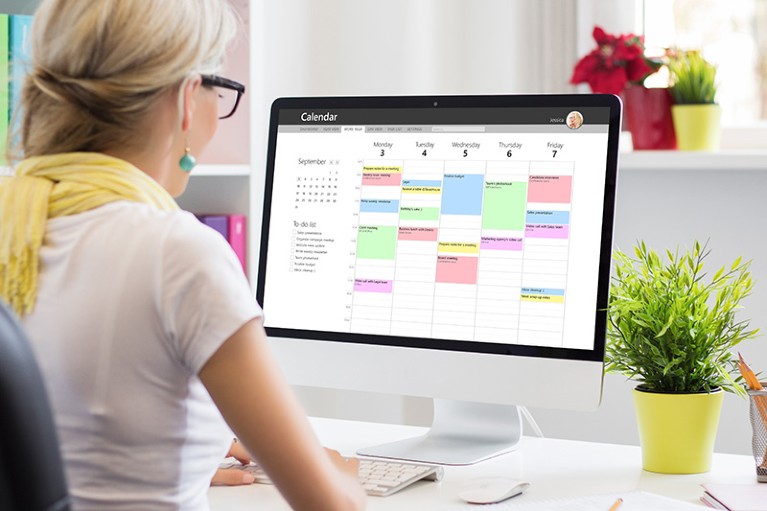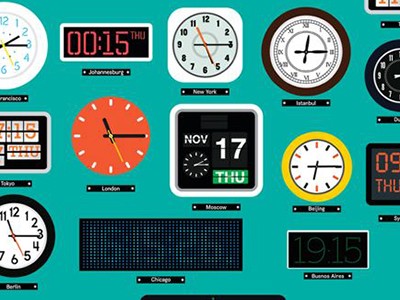Credit: grinvalds/iStock/Getty
If I’ve learnt anything after 18 years in research, it’s that most scientists have no idea how many hours they actually work, let alone how long they need to complete specific tasks.
Without these data, you can’t make realistic plans to get things done. The inevitable consequence is work creeping into every part of your life, including the weekends. Life becomes like an episode of the US psychological television drama Severance, where you never, ever clock out.
Time management for scientists
Once, a manager called me into a meeting with human resources and asked me why I wasn’t spending more time in the classroom. Because I use software to track my time, I could account for every minute of the year. The data revealed I spent much more than half my time in the classroom. We ended up having a very different conversation from the one my manager was expecting — how to reduce my teaching load. Winning!
Gathering data about how and when you work not only helps to settle occasional workplace disputes, but it can also stave off overwork. After five years of time-tracking, for instance, I know that managing my e-mail requires at least 40 minutes per day, and that I need to commit an extra 30% of ‘invisible work’ time to manage any given project. (Invisible work includes meetings, paperwork and other tasks that are unpredictable but nevertheless part of my total time budget.) Yet, when I show other people my time-tracking system, their usual reaction is polite horror. Some people cannot believe that I spend only 15 minutes or so checking data in the system for accuracy and generating reports, or fail to see the point of spending time to measure time. But I would argue that these 15 minutes are well spent if I can avoid working weekends to catch up.
Time is on my mind
I have learnt the hard way that overwork leads to burnout. But I’ve also studied the working practices of academics. In a 2019 analysis, my colleagues and I reported that academics submitted manuscripts to two medical journals at disproportionately higher rates at the weekend1. That’s not surprising — writing is one of the tasks that is most easily pushed out of normal working hours. When multiple people are involved in a writing project, the problem of slipping deadlines intensifies. Other people’s poor planning affects your own schedule, and instead of relaxing, your summer holiday is spent writing, leading to a vicious cycle of overwork.
The solution is obvious: track your time.
My favourite tool for time-tracking is the app Timing for macOS users that sits in the background and ‘watches’ how I work. (RescueTime serves a similar function for Windows users.) These programs cost up to US$10 per month on subscription (which is tax-deductible here in Australia), and allow you to capture time spent both using your computer and away from the keyboard — for instance, in meetings.
Inger Mewburn uses software to track the time she spends on work tasks.Credit: Boring Headshots (boringheadshots.com.au)
The Timing app can be trained to categorize your hours according to the type of program you are using and the keywords inside a document. A dashboard summarizes how you spend your time and the rhythms of your work, and you can decide what constitutes ‘productive’ time at the keyboard to generate a score. You might rate social-media sites, for example, as a poor use of time compared with time spent using Microsoft Word. I can add notes to these time logs; this is important because tasks such as writing can vary depending on context — writing a journal article takes more time than writing an e-mail, and it’s important to know the difference to plan appropriately.
Keeping an eye on your productivity score can help you to stay honest to your goals and arrange your days. My own analysis tells me that I am most productive before lunch, so I make sure that I schedule difficult tasks in the morning. You can also generate reports to inform your planning processes and share them with your colleagues.
Burnout and breakdowns: how mid-career scientists can protect themselves
My typical working week is just over 44 hours. About half of that time is spent teaching, with the rest equally divided between service work, research, passion projects and FAT (my cheeky term for invisible work; no prizes for guessing what FAT stands for, but you can find out on my blog). Passion work is work I do for me. I don’t believe in donating extra hours to my employer, so I make sure all my university duties fit into the 37.5 hours a week stated in my contract. I also like to record podcasts and write articles like this one, which are not strictly part of my job. When a previous employer made noises about wanting to take my blog name and content when I left, my Timing data helped to show that I owned the intellectual property. I departed with my ‘Thesis Whisperer’ baby in my arms, but the experience made me realize that my career is more than the job I happen to have at any given time and that I need to protect my assets.
Pre-game analysis
When planning a big project, I like to do an analysis with the US Navy’s Program Evaluation and Review Technique (PERT).
PERT considers three variables — most likely (Tm), optimistic (To) and pessimistic (Tp) time to completion of a task — which you can estimate using your time-sheet data. I do this manually, but Timing can also generate spreadsheets showing how many hours I spent on particular projects, which enables me to compile and compare data from week to week. You can then plug your numbers into the following formulas to estimate the amount of time that you should set aside to complete the task:
PERT time estimate = (To + 4Tm + Tp) / 6
Standard deviation = (Tp − To) / 6
You will be shocked by how quickly your calendar fills up when you plan with PERT! Yet for many academics, keeping time sheets is a non-starter. Perhaps they feel that it undermines the autonomy and flexibility we all value about academia. But really, it’s the opposite: if you know how long typical tasks really take, then you can slot them into your week instead of using the weekend as a work buffer.
And it’s better that we do this rather than our employers. To be clear, I am fiercely against the idea of universities tracking our time for us — in management’s hands, detailed time-on-task data can be used as a stick to drive performance. But for researchers, time-tracking software can lead to greater productivity and clarity around your work practices and habits.
As the saying goes, what gets measured gets managed — and maybe you get your weekends back.










More News
Author Correction: Stepwise activation of a metabotropic glutamate receptor – Nature
Changing rainforest to plantations shifts tropical food webs
Streamlined skull helps foxes take a nosedive